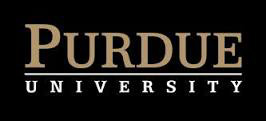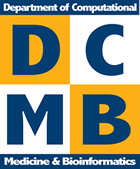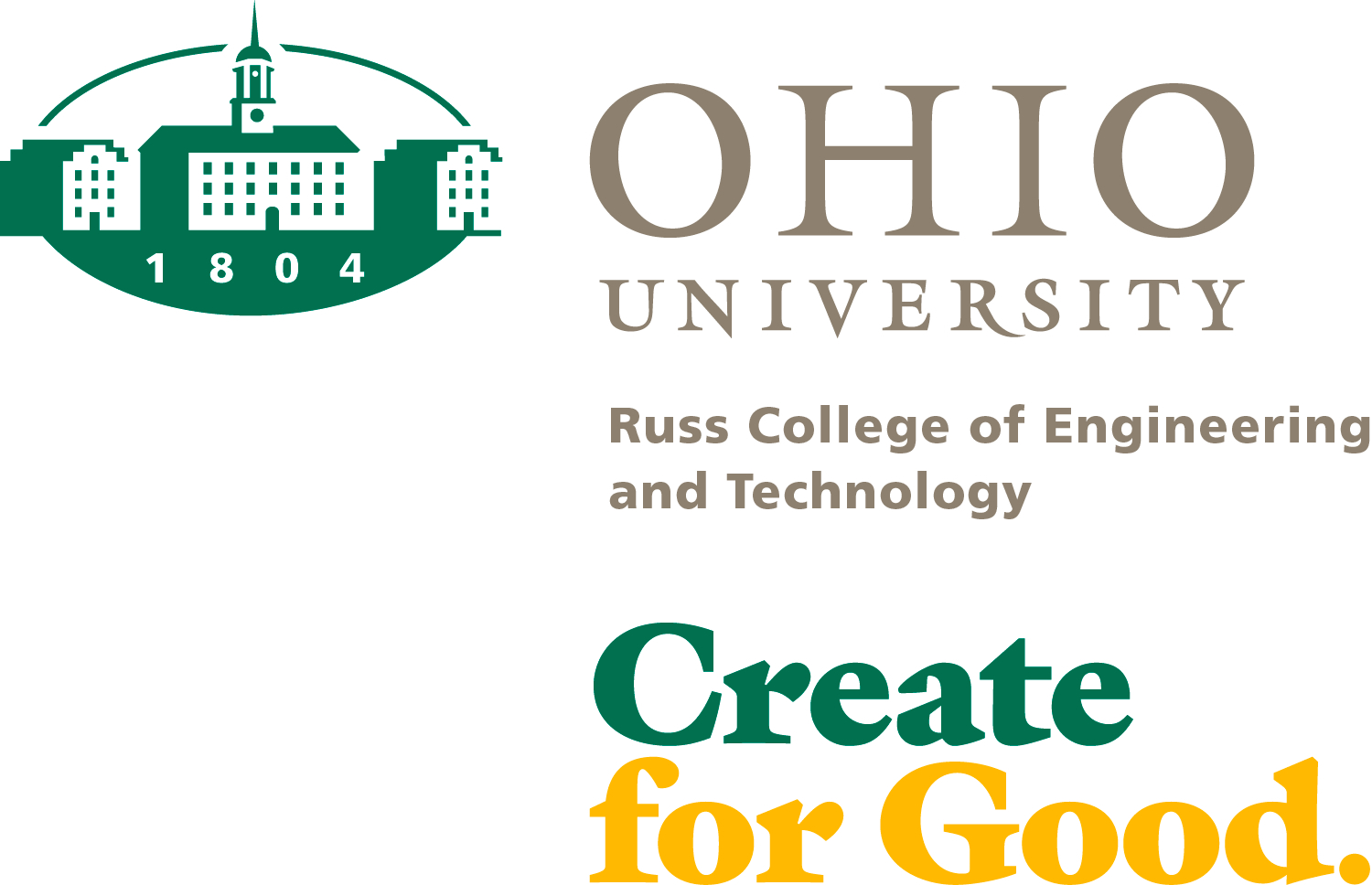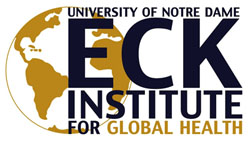Committees - ISMB/ECCB 2013
Steering Committee- Scientific Organizing Committee
- Art & Science Committee
- Highlights Committee
- Late Breaking Research Committee
- Posters Committee
- Proceedings Committee
- Special Interest Groups Committee
- Special Sessions
- Technology Track Committee
- Travel Fellowship Committee
- Workshop Committee
Steering Committee
Anna Tramontano, Conference Co-chair, University of Rome “La Sapienza”, Italy
Nir Ben-Tal, Proceedings Chair, Tel Aviv University, Israel
Janet Kelso, Max Planck Institute for Evolutionary Anthropology, Leipzig, Germany
Scientific Organizing Committee
Highlights Track Chair: Burkhard Rost, TUM, Munich, Germany
Late Breaking Research Track Chair: Ioannis Xenarios, University of Lausanne, Switzerland
Workshops Track Chair: Christine Orengo, University College London, United Kingdom
Art & Science Committee
Milana Frenkel-Morgenstern, Chair, Spanish National Cancer Research Centre (CNIO), Madrid, Spain
Maja Klevanski, Heidelberg, Germany
Geoff Macintyre, University of Melbourne, Australia
Venkata Satagopam, Luxembourg Centre For Systems Biomedicine (LCSB), University of Luxembourg
Highlights Committee
Burkhard Rost, Committee Co-Chair, Technical University Munich, Germany
Reinhard Schneider, Committee Co-Chair, University of Luxembourg
Kiyoshi Asai, University of Tokyo, Japan
Erik Bongcam-Rudloff, Uppsala University, Sweden
Eleazar Eskin, University of California, Los Angeles, United States
Terry Gaasterland, University of California, San Diego, United States
Yanay Ofran, Bar Ilan University, Ramat-Gan, Israel
Paul Horton, Computational Biology Research Center, AIST, Tokyo, Japan
Toni Kazic, University of Missouri, Columbia, United States
Janet Kelso, Max Planck Institute for Evolutionary Anthropology, Leipzig, Germany
Stefan Kramer, Technical University Munich, Germany
Michal Linial, The Hebrew University of Jerusalem, Bloomington, Israel
Predrag Radivojac, Indiana University, United States
Jacques Reifman, US Army Medical Research and Materiel Command, Fort Detrick, United States
Donna Slonim, Tufts University, Medford, United States
Alfonso Valencia, Spanish National Cancer Research Centre (CNIO), Madrid, Spain
Lonnie Welch, Ohio University, Athens, United States
Ralf Zimmer, University of Munich, Germany
top
Late Breaking Research Track Committee
Ioannis Xenarios, Chair, University of Lausanne, Switzerland
Dana Pe'er, Co-chair, Columbia University, United States
Edoardo Airoldi, Harvard University, United States
Winston Hide, African National Bioinformatics Institute, South Africa
Oliver Hoffmann, SANBI, South Africa
Curtis Huttenhower, Harvard School of Public Health, United States
Carl Kingsford, University of Maryland, United States
Xiaole Liu, Harvard School of Public Health, United States
Florian Markowetz, Cambridge University, United States
Predrag Radivojac, Indiana University, United States
Olga Vitek, Purdue University, United States
Yong Zhang, School of Life Science and Technology, Tongji University, China
Posters Committee
Yana Bromberg, Committee Chair, Rutgers, The State University of New Jersey, Newark, United States
Fran Lewitter, Committee Co-Chair, Whitehead Institute for Biomedical Research, Cambridge, United States
Laszlo Kajan, Technical University of Munich, Germany
Jeroen de Ridder, Delft University of Technology, Amsterdam, The Netherlands
Hannah Carter, Johns Hopkins University, Baltimore, United States
Iddo Friedberg, Miami University, Oxford, United States
Tatyana Goldberg, Technical University Munich, Germany
Thomas Peterson, University of Maryland, Baltimore, United States
Ben Jelen, Rutgers University, New Brunswick, United States
Nikolay Samusik, Stanford University, United States
Wyatt Clark, Indiana University, United States
Yves Moreau, Catholic University of Leuven, Belgium
Hande Kucuk, University of Miami, United States
Jonas Reeb, Technical University of Munich, Germany
Juan Miguel Cejuela Technical University of Munich, Germany
Oren Tzfadia, Weizmann Institute, Israel
Jason McDermott, Pacific Northwest National Laboratory, United States
Geoff Macintyre, University of Melbourne, Australia
Magali Michaut, Netherlands Cancer Institute, Amsterdam, Netherlands
Venkata Satagopam, Luxembourg Centre For Systems Biomedicine (LCSB), University of Luxembourg
Andrea Schafferhans, Technical University Munich, Germany
Edda Kloppmann, TUM Munich, Germany
Avner, Schlessinger, UCSF, San Francisco, United States
Stefan Senn, Rutgers University, New Brunswick, United States
Nir Ben-Tal, Tel-Aviv University, Israel
Chengsheng Zhu, Rutgers University, New Brunswick, United States
Proceedings Committee
Nir Ben-Tal, Tel Aviv University, Israel
Ora Furman, The Hebrew University of Jerusalem, Israel
Thomas Lengauer, Max Planck Institute for Informatics, Saarbrücken, Germany
Area Committee Members Show | Hide
Sean O'Donoghue, CSIRO & Garvan Institute, Sydney, Australia
Carolina Wählby, Broad Institute, Cambridge, United States
Area Committee Members Show | Hide
Alex Bateman, European Bioinformatics Institute (EMBL-EBI), Wellcome Trust Genome Campus, Hinxton, United Kingdom
Hagit Shatkay, University of Delaware, Newark, United States
Area Committee Members Show | Hide
Tandy Warnow, The University of Texas at Austin, USA
Tal Pupko, Tel Aviv University, Israel
Area Committee Members Show | Hide
Gene Regulation & Transcriptomics
Zohar Yakhini, Agilent, Haifa, Israel
Alexander Hartemink, Duke University, United States
Area Committee Members Show | Hide
Mass Spectrometry & Proteomics
Rob Russell, University of Heidelberg, Germany
Olga Vitek, Purdue University, West Lafayette, United States
Area Committee Members Show | Hide
Metabolic Networks
Bonnie Berger, Massachusetts Institute of Technology , Cambridge, United States
Jason Papin, University of Virginia, United States
Population Genomics
Russell Schwartz, Carnegie Mellon University, Pittsburgh, United States
Eleazar Eskin, University of California, Los Angeles, United States
Area Committee Members Show | Hide
Protein Interactions & Molecular Networks
Mona Singh, Princeton University, United States
Roded Sharan, Tel-Aviv University, Israel
Area Committee Members Show | Hide
Protein Structure & Function
Lenore Cowen, Tufts University, Medford, United States
Jie Liang, University of Illinois at Chicago, United States
Area Committee Members Show | Hide
RNA Bioinformatics
Hanah Margalit, The Hebrew University of Jerusalem, Israel
Ivo Hofacker, University of Vienna, Vienna Austria
Area Committee Members Show | Hide
Sequence Analysis
Serafim Batzoglou, Stanford, United States
Cenk Sahinalp, Simon Fraser University, Vancouver, Canada
Special Interest Groups Committee
Alan Christoffels, Committee Co-chair, University of Western Cape, South Africa
Hershel Safer, Committee Co-chair, Tel Aviv University, Israel
Jill Mesirov, Broad Institute of MIT and Harvard, Cambridge, United States
Nicky Mulder, University of Capetown, South Africa
Christine Orengo, University College London, United Kingdom
top
Technology Track Committee
Rodrigo Lopez, Committee Chair, European Bioinformatics Institute, Cambridge, United Kingdom
Christophe Blanchet, Centre National pour la Recherche Scientifique, Lyon, France
William Pearson, University of Virginia School of Medicine, Charlottesville, United States
Christine Orengo, University College London, United Kingdom
Johannes Soeding, Ludwig-Maximilians-Universitaet Muenchen, Germany
Des Higgins, University College Dublin, Ireland
Travel Fellowship Committee
Guilherme Oliveira, FIOCRUZ- Minas, Belo Horizonte, Brazil
Francisco Lobo, EMBRAPA, Brazil
Appolinaire Djikeng, International Livestock Research Institute, Kenya
Ulisses de Mendonça Braga-Neto, Texas A&M University, United States
Joel Arrais, University of Coimbra, Portugal
Daniel Hurley, University of New Zealand
Travel Fellowship Committee
Janet Kelso, Chair, Max-Planck-Institute for Evolutionary Anthropology, Leipzig, Germany
Fran Lewitter, Whitehead Institute of Biomedical Research, Cambridge, United States
Workshop Committee
Christine Orengo, Committee Chair, University College London, United Kingdom
Janet Kelso, Max Planck Institute for Evolutionary Anthropology, Leipzig, Germany
Predrag Radivojac, Indiana University, Bloomington, United States
Conference Chairs
Burkhard Rost, Conference Co-chair, Technical University Munich, Germany
Anna Tramontano, Conference Co-chair, University of Rome, Italy
Martin Vingron, Conference Co-chair, Max Planck Institute for Molecular Genetics, Berlin, Germany
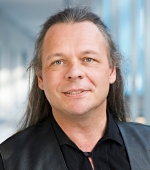
Burkhard Rost obtained his doctoral degree (Dr. rer. nat.) from the University of Heidelberg (Germany) in the field of theoretical physics. He began his research working on the thermo-dynamical properties of spin glasses and brain-like artificial neural networks. He moved briefly (1988-1990) into peace/arms control research designing simple non-intrusive sensor networks to monitor aircraft. He entered the field of molecular biology at the European Molecular Biology Laboratory (EMBL, Heidelberg, Germany, 1990-1995), spent a year at the European Bioinformatics Institute (EBI, Hinxton, Cambridgshire, England, 1995), returned to the EMBL (1996-1998), joined the company LION Biosciences for a brief interim (1998). In 1998, he joined the Department of Biochemistry & Molecular Biophysics at the College of Physicians and Surgeons of Columbia University in the city of New York. In 2009, he has been awarded one of the first Alexander von Humboldt Professorships that has brought him to the TUM in Munich, where he is now chairing the program of Computational Biology and Bioinformatics.
In 1992, Dr. Rost developed the first Internet server for structure prediction and sequence analysis (PredictProtein), and contributed a number of methods that predict aspects of protein structure. His major research contribution has been the combination of machine learning and evolutionary information. His academic research goal is to contribute toward the understanding of molecular evolution; his technical objective is to contribute toward understanding the impact of molecular changes. Particular focus lies now on predicting the effects of SNPs in the context of individualized medicine and the formation of diversity in general.
Current research focuses on the prediction of protein function from sequence and structure. It includes the prediction of subcellular localization, of protein-protein and protein-substrate interactions, the analysis of protein networks, the development of a dynamic view of the protein sequence/structure universe, the development of improved alignment algorithms, and the development of software systems that meet today’s challenges.
Website: www.rostlab.org
 Anna Tramontano was trained as a physicist but she soon became fascinated by the complexity of biology and by the promises of computational biology. After a post-doctoral period at UCSF, she joined the Biocomputing Programme of the EMBL in Heidelberg. In 1990 she moved back to Italy to work in the Merck Research Laboratories near Rome. In 2001, she returned to the academic world as a Chair Professor of Biochemistry in "La Sapienza" University in Rome. She is a member of the European Molecular Biology Organization and of the Scientific Councils of the ERC. She is also one of the organizers of the Critical Assessment of Techniques for Protein Structure Prediction (CASP) initiative, a member of the EBI Advisory Committee, of the Scientfic Advisory Board of the CRG, of the MPI for Molecular Genetics, of the SIB and of the Scuola Normale Superiore. She is Associate Editor of Bioinformatics and Proteins.
Anna Tramontano was trained as a physicist but she soon became fascinated by the complexity of biology and by the promises of computational biology. After a post-doctoral period at UCSF, she joined the Biocomputing Programme of the EMBL in Heidelberg. In 1990 she moved back to Italy to work in the Merck Research Laboratories near Rome. In 2001, she returned to the academic world as a Chair Professor of Biochemistry in "La Sapienza" University in Rome. She is a member of the European Molecular Biology Organization and of the Scientific Councils of the ERC. She is also one of the organizers of the Critical Assessment of Techniques for Protein Structure Prediction (CASP) initiative, a member of the EBI Advisory Committee, of the Scientfic Advisory Board of the CRG, of the MPI for Molecular Genetics, of the SIB and of the Scuola Normale Superiore. She is Associate Editor of Bioinformatics and Proteins.
Her current research interests are devoted to the computational analysis of the genome, proteome and interactome of Homo sapiens and its parasites.
Website: http://www.biocomputing.it
 Martin Vingron (Dr. rer nat.), is a mathematician by education who has done his PhD in computational biology at EMBL in 1991. At the time and for a number of years of postdoctoral training his research has focused on the analysis of protein sequences, sequence analysis, sequence comparison, and molecular evolution. Methods of discrete optimisation were used for the design of comparison algorithms and probability theory was applied to answer questions of significance of computational results. Later, as a department head at the German Cancer Research Center and from 2000 on as a director at the Max Planck Institute for Molecular Genetics in Berlin, his research focus shifted towards the processing and mathematical analysis of functional genomics data. He has contributed to analysis methods for DNA microarrays and in recent years has been working on transcriptional regulation. Vingron received the Max Planck Research Prize in 2004, is an elected member of the German Academy of Natural Scientists Leopoldina, and also holds a secondary appointment at the CAS-MPG Partner Institute for Computational Biology in Shanghai.
Martin Vingron (Dr. rer nat.), is a mathematician by education who has done his PhD in computational biology at EMBL in 1991. At the time and for a number of years of postdoctoral training his research has focused on the analysis of protein sequences, sequence analysis, sequence comparison, and molecular evolution. Methods of discrete optimisation were used for the design of comparison algorithms and probability theory was applied to answer questions of significance of computational results. Later, as a department head at the German Cancer Research Center and from 2000 on as a director at the Max Planck Institute for Molecular Genetics in Berlin, his research focus shifted towards the processing and mathematical analysis of functional genomics data. He has contributed to analysis methods for DNA microarrays and in recent years has been working on transcriptional regulation. Vingron received the Max Planck Research Prize in 2004, is an elected member of the German Academy of Natural Scientists Leopoldina, and also holds a secondary appointment at the CAS-MPG Partner Institute for Computational Biology in Shanghai.
Website: http://cmb.molgen.mpg.de
